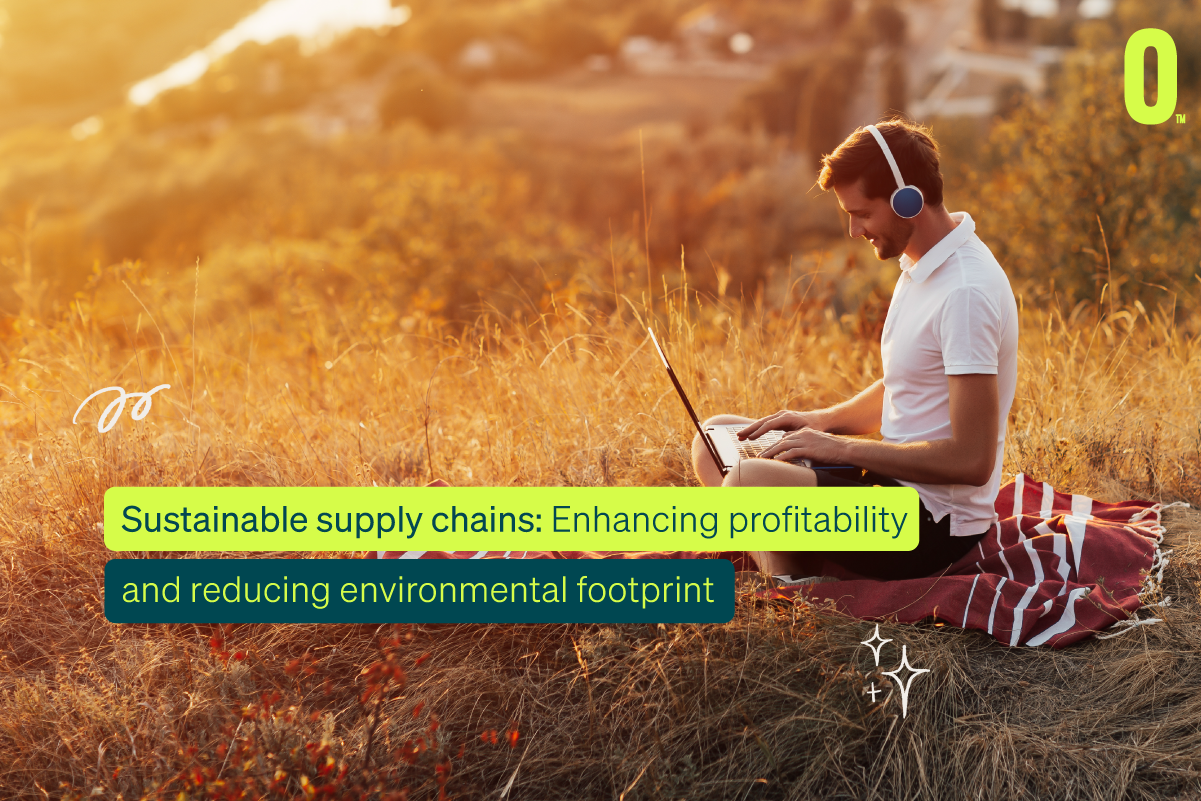In an era of heightened environmental consciousness, businesses are increasingly recognising the importance of sustainability throughout their operations. One crucial aspect is the integration of sustainable practices within supply chains. By adopting sustainable supply chain strategies, businesses can not only reduce their environmental footprint but also enhance profitability and gain a competitive edge.
In this article, we delve into the benefits and strategies of sustainable supply chains in driving profitability while reducing environmental impact. Of course, to truly realise these goals, it’s essential that sustainability measures are meaningful and well-implemented to avoid greenwashing
Cost savings through efficiency
Implementing sustainable practices in supply chains can lead to significant cost savings. By optimising transportation routes, reducing packaging waste, and improving energy efficiency in logistics operations, businesses can lower operational costs. Streamlining processes and adopting lean practices can also reduce waste, minimise excess inventory, and lower carrying costs. These cost-saving measures contribute directly to profitability while aligning with sustainable objectives.
Enhanced brand reputation and customer loyalty
A sustainable supply chain can significantly improve brand reputation and customer loyalty. Today’s consumers are increasingly environmentally conscious and prefer to support businesses that align with their values. By implementing sustainable practices, businesses demonstrate their commitment to reducing environmental impact, fostering trust, and building strong relationships with environmentally conscious customers. This positive brand image and reputation translate into increased customer loyalty and a competitive advantage in the market.
Mitigating supply chain risks
Sustainable supply chain practices help businesses mitigate various risks associated with climate change, resource scarcity, and regulatory changes. By diversifying suppliers, businesses can reduce dependence on single sources and ensure continuity in the face of potential disruptions. Adopting sustainable sourcing practices and monitoring suppliers’ environmental performance can also mitigate reputational risks and compliance issues. These risk mitigation measures contribute to long-term profitability and stability.
Regulatory compliance and market access
Governments worldwide are enacting stricter environmental regulations to address climate change and promote sustainable practices. By incorporating sustainability into their supply chains, businesses can proactively comply with existing and future regulations. This not only avoids potential fines and penalties but also opens doors to new markets and partnerships. Many clients and organisations now require suppliers to meet specific sustainability criteria, making a sustainable supply chain a prerequisite for market access and business opportunities.
Innovation and competitive advantage
Embracing sustainable supply chain practices often drives innovation within businesses. The quest for more sustainable alternatives can lead to the development of new products, processes, and technologies. This innovation not only enhances environmental performance but also creates opportunities for differentiation and competitive advantage. Being at the forefront of sustainability can attract environmentally conscious consumers and position businesses as industry leaders, contributing to long-term profitability.
Collaboration and stakeholder engagement
Building sustainable supply chains often involves collaboration with suppliers, partners, and other stakeholders. By fostering strong relationships and engaging in sustainable initiatives collectively, businesses can drive positive change throughout the supply chain. Collaborative efforts can lead to shared knowledge, resource optimisation, and collective problem-solving, enhancing supply chain efficiency and sustainability. Stakeholder engagement also contributes to reputation-building and improves relationships with investors, customers, and communities.
Measurement and transparency
To effectively manage and improve sustainability in supply chains, businesses need to measure and track their environmental performance. Implementing metrics and key performance indicators (KPIs) allows businesses to identify areas for improvement, set targets, and track progress over time. Transparent reporting of sustainability metrics demonstrates accountability and builds trust with stakeholders. It also provides valuable insights for identifying opportunities for further sustainability enhancements and cost-saving measures.
Sustainable supply chains offer businesses a powerful means to enhance profitability while reducing their environmental footprint. By adopting efficient practices, enhancing brand reputation, mitigating risks, and driving innovation, businesses can create a win-win situation where economic success and environmental stewardship go hand in hand.
Partner with our ISO 27001 certified MSP to meet your supply chain sustainability goals
Take a decisive step towards achieving your supply chain sustainability goals with the assistance of our ISO 27001 certified Managed Service Provider (MSP) in Melbourne.
With our expertise and commitment to information security, we offer expert guidance, conducting comprehensive sustainability assessments and developing tailored strategies to optimise your supply chain operations. Our collaborative approach ensures engagement with suppliers, fostering a sustainable ecosystem. By integrating cutting-edge technologies and continuous monitoring, we enable data-driven decision-making, efficiency gains, and waste reduction.
Trust our ISO 27001 certified MSP to navigate the complexities of sustainability, as we help your business make significant strides towards a greener and more profitable future. Contact us today and embark on a transformative journey towards sustainable supply chain management.



